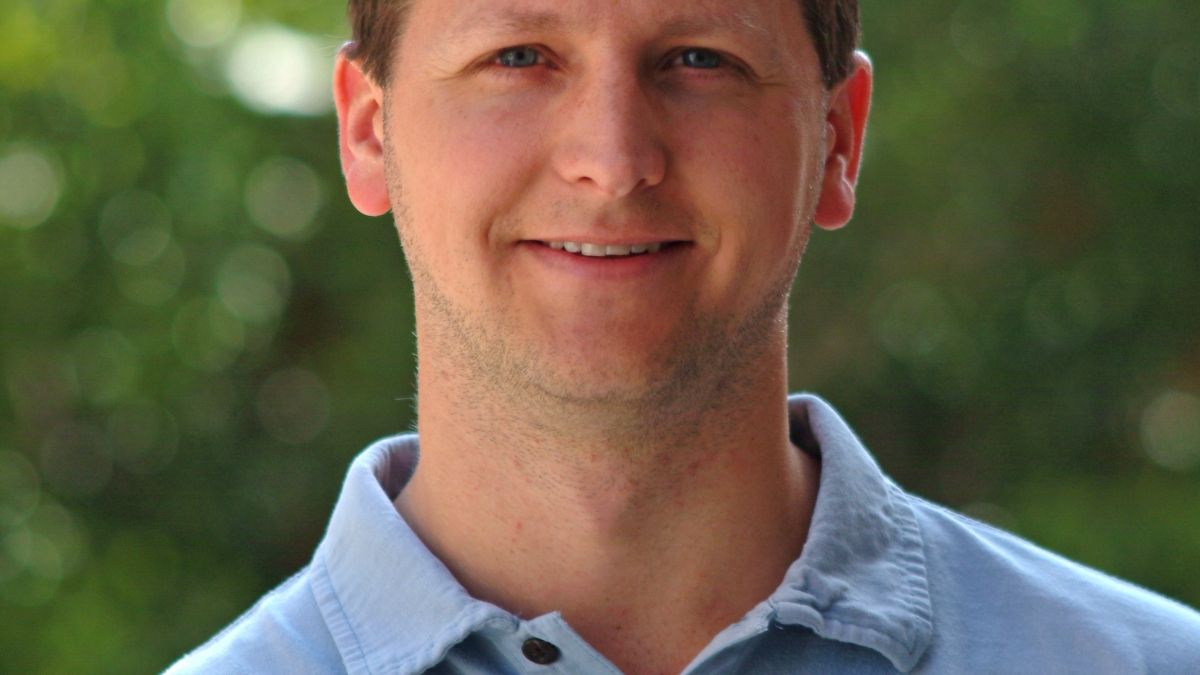ASU life sciences professor receives 2 prestigious scientific awards

Kevin McGraw, a professor with the ASU School of Life Sciences, is recognized with two outstanding scientific awards.
Kevin J. McGraw, a professor with Arizona State University's School of Life Sciences, has been named the 2017 Elliott Coues Award winner by the American Ornithological Society. This prestigious award is given to a researcher in recognition of outstanding and innovative research contributions to the field of ornithology, the scientific study of birds.
The Elliott Coues award is given in honor of Elliott Coues, a pioneering ornithologist of the western United States and also a founding member of the American Ornithologists’ Union. The American Ornithological Society is a newly formed society (a merger of the American Ornithologists’ Union and the Cooper Ornithological Society) whose mission combines the long-standing priorities of both former societies, by working to advance the scientific understanding of birds and to promote bird conservation.
“I am honored to receive this year’s Coues award — the first time it is given out by the new American Ornithological Society. I have devoted over 20 years to professional ornithological research, and it is incredibly humbling to receive such recognition by my colleagues in this field,” McGraw said.
McGraw is a behavioral ecologist who primarily studies the colors of animals such as birds to understand the costs, benefits and evolution of visual signals. His research also focuses on identifying the chemical nature, distribution and functions of natural carotenoid pigments, which are mainly yellow, orange or red colorants in nature. He has studied diverse groups of birds, including penguins, hummingbirds and parrots, as well as other colorful creatures.
In addition, McGraw was named a 2017 fellow of the International Carotenoid Society. This year’s fellows were formally announced during the society’s 18th International Symposium on Carotenoids held in Switzerland this summer. At the symposium, McGraw presented his research on emerging carotenoid science, in a talk titled “Tissue carotenoid allocation in New Zealand birds: a comparative test of condition-dependence and trade-off models.”
Professor Kevin McGraw is an integrative behavioral ecologist who primarily studies the colors of animals such as birds to understand the costs, benefits and evolution of visual signals. Photo courtesy of Kevin McGraw
McGraw said: “My first experience with The International Carotenoid Society was at its 2002 meeting in Honolulu, essentially as a ‘misfit’ graduate student who was studying the colors of birds — something pretty far afield from the typical foci of the group. Fifteen years later, I can’t express how much it means to me to be viewed as a valued contributor to the society and discipline, but also as an inaugural member of the society’s group of Fellows.”
The International Carotenoid Society supports all areas of carotenoid science and seeks to increase public awareness of this specialized field, as well as promote multidisciplinary investigations aimed at solving critical human and global problems in nutrition and health.
McGraw’s innovative research has wide-ranging implications for understanding organismal adaptations to environmental constraints. He has authored more than 200 scientific articles, in addition to co-editing a two-volume book on bird coloration. In addition, he has mentored more than a dozen graduate students and 250 undergraduate students in research. He previously served as director of the school’s undergraduate research program and now serves as associate director for facilities for the school.
More Science and technology

Cracking the code of online computer science clubs
Experts believe that involvement in college clubs and organizations increases student retention and helps learners build valuable…
Consortium for Science, Policy & Outcomes celebrates 25 years
For Arizona State University's Consortium for Science, Policy & Outcomes (CSPO), recognizing the past is just as important as…

Hacking satellites to fix our oceans and shoot for the stars
By Preesha KumarFrom memory foam mattresses to the camera and GPS navigation on our phones, technology that was developed for…
